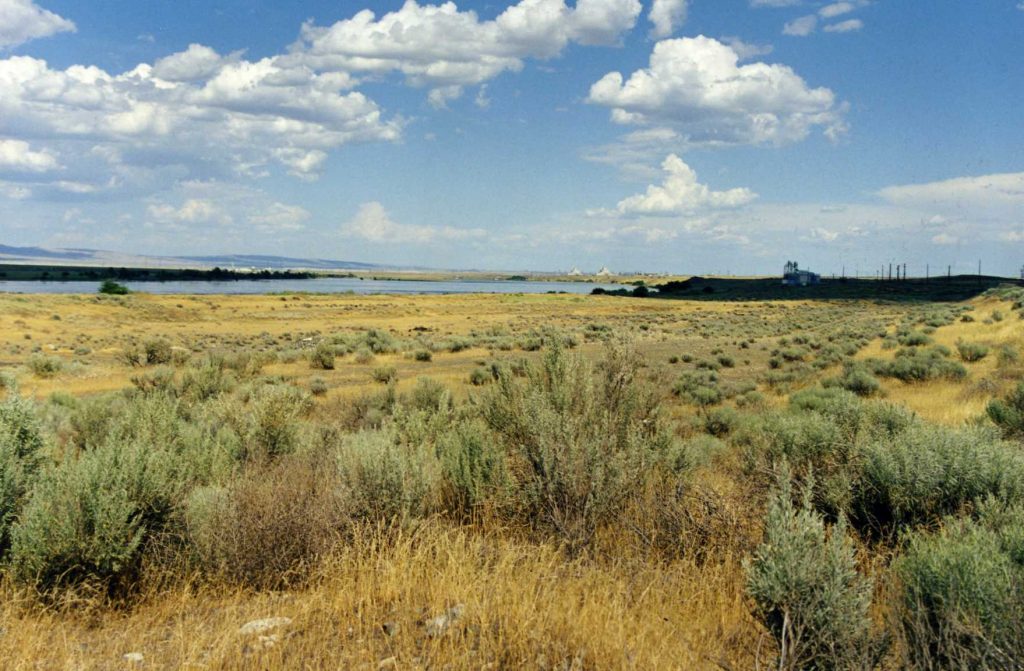John Parke Hood, III was a Phi Beta Kappa graduate of Lafayette College with a Chemical Engineering degree. Following graduation, he immediately began work for DuPont in Charleston, WV. In 1941, he was transferred to a plant in Morgantown, WV, where he met and married Mary Billingsley, who was a senior at West Virginia University. There was a restricted area at the Morgantown plant, and he and his fellow engineers speculated about what was going on in that area, which caused a bit of a problem.
In July, 1944, Hood was told that his job was eliminated and he had to report to an address in Tennessee. He was not given a choice, despite the fact that he would have to leave a new baby and wife in Morgantown. He ended up in Oak Ridge and spent many months there, unable to contact his wife or let her know what was going on. He did manage one trip back to Morgantown, although it was a little bit sneaky. He received a draft notice directing him to report to a draft center in Kentucky. He knew that he would not be eligible to be drafted, but he thought he might be able to take the train from the draft center up to Morgantown and at least have a day with his wife and son. So he went to the draft center and did end up visiting with Morgantown and seeing his family.
After a stint at Oak Ridge, Hood was transferred to Richland, Washington to work at the plant there. He remembered long bus ride from the housing area in Richland and the plant. The road was primitive and they all bounced around inside the bus from the washboard surface. To ease the boredom, he created a makeshift chess board with plywood. He drilled holes in his chess pieces and then put nails up into the plywood to keep the chess pieces from sliding around on the board. He said his game really improved from the endless trips back and forth to the plant.
Hood and his wife lived in a government housing area, along with other engineers and staff who worked on the project. When they would get rare time off, the families would pool their ration tickets and somehow pull off a party. Mary talked about the walls of the housing units being paper thin, and how the desert environment just blew sand and dust everywhere.
Hood often said that no one really knew what impact the bomb would have on civilization and most hoped that the threat of the bomb would be sufficient to end the war. When the bombs were dropped on Nagasaki and Hiroshima, there was little or no celebration in Richland. He said that you would have to travel the 300 miles to Seattle to see the kind of celebration we associate with the end of the war.
Later Years
When his children were teenagers, Hood had them John Hersey’s Hiroshima, and he told them that he was involved in the development of that bomb. He showed them the certificate he received from the President, thanking him for his service, but it was clear he was conflicted about the horrible destruction that resulted from the bombs. It was only much later in his life that he would tell his children some stories about their life during that time.
Hood worked at the Richland plant until some time in 1946 when he was transferred to Texas to set up a heavy water plant near Port Arthur. He and his family lived there five years. Then they moved to Illinois where Hood worked on a plant in Terra Haute, Indiana. Eighteen months later, they moved on to Wilmington, DE for a year, and then on to Aiken, SC where he worked on the Savannah River Plant. In the mid-1950s Hood decided he’d had enough plant work and he and his family moved to Wilmington, DE where he took a desk job in the Plastics Department. In the late 1960s he was transferred to Johannesburg, South Africa for a few years. He took an early retirement from DuPont in the mid-1970s.
Hood wrote lectures on his Manhattan Project experiences. See Part 1 and Part 2.
Information submitted by his daughter, Barbara.





